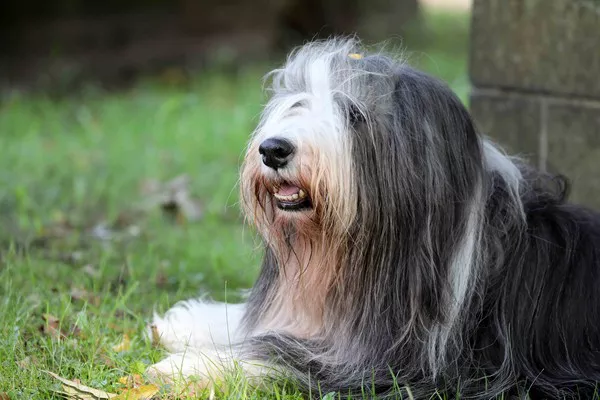Bearded Collies, affectionately known as “Beardies,” are a delightful breed known for their long, shaggy coat and lively personality. Whether you’re a first-time Bearded Collie owner or an experienced enthusiast, it’s essential to understand how to provide the best care for these wonderful dogs. In this comprehensive guide, we will delve into various aspects of Bearded Collie care, including grooming, nutrition, exercise, training, healthcare, and more, to ensure your Beardie remains happy and healthy throughout their life.
Grooming a Bearded Collie
Regular Brushing: Bearded Collies have a unique double coat that requires regular brushing. To prevent mats and tangles, aim to brush your Beardie’s coat at least a few times a week. Use a slicker brush or a pin brush to reach the dense undercoat and detangle the fur.
Bathing: Bearded Collies don’t need frequent baths unless they become exceptionally dirty. Bathing every two to three months is generally sufficient. Use a dog-specific shampoo and conditioner to maintain coat health and shine.
Trimming and Clipping: Many Bearded Collie owners choose to trim their dog’s coat, especially around the face and feet, to make grooming and maintenance more manageable. Some opt for a “puppy cut” for a neater appearance.
Ears and Eyes: Regularly check and clean your Bearded Collie’s ears and eyes to prevent infections or irritations. Use a damp cloth or cotton ball to clean around the ears and a tear stain remover for any eye discharge.
Teeth: Dental hygiene is vital for Bearded Collies. Brush their teeth regularly using a dog-specific toothbrush and toothpaste or provide dental chews and toys to reduce plaque buildup.
Nutrition and Feeding
High-Quality Dog Food: Choose a high-quality commercial dog food suitable for your Beardie’s age, size, and activity level. Look for foods with meat as the primary ingredient and avoid fillers like corn and soy.
Portion Control: Bearded Collies can be prone to obesity, so it’s crucial to measure their food portions and avoid overfeeding. Consult with your veterinarian to determine the right amount of food for your dog.
Feeding Schedule: Establish a consistent feeding schedule, typically two meals a day for adult Bearded Collies. Puppies may require more frequent meals.
Fresh Water: Ensure your Bearded Collie always has access to clean, fresh water.
Avoid Human Food: Refrain from feeding your Beardie human food, especially items that can be toxic to dogs, such as chocolate, grapes, and onions.
Exercise and Activity
Daily Exercise: Bearded Collies are an active breed that thrives on daily exercise and playtime. Aim for at least one hour of physical activity, which can include walks, hikes, or playtime in a secure, fenced yard.
Mental Stimulation: These dogs are intelligent and require mental stimulation to prevent boredom. Puzzle toys, obedience training, and interactive games are excellent ways to keep their minds engaged.
Socialization: Start socializing your Bearded Collie from a young age by exposing them to various people, animals, and environments. This helps them develop into well-rounded and confident dogs.
Training and Obedience
Positive Reinforcement: Use positive reinforcement techniques, such as treats, praise, and toys, to reward good behavior. Bearded Collies respond well to positive reinforcement.
Basic Commands: Teach your Bearded Collie basic commands like sit, stay, come, and heel. Consistent training helps establish boundaries and a strong bond between you and your dog.
Socialization: As mentioned earlier, socialization is vital. Expose your Beardie to different situations and people to ensure they are comfortable and well-behaved in various settings.
Obedience Classes: Consider enrolling your Bearded Collie in obedience classes, especially if you’re a first-time owner. Professional trainers can help you and your dog learn valuable skills.
Healthcare and Regular Checkups
Vaccinations: Keep your dog’s vaccinations up-to-date as recommended by your veterinarian to prevent common diseases.
Regular Checkups: Schedule regular checkups with your vet to monitor your Beardie’s overall health, address any concerns, and receive guidance on specific health issues associated with the breed.
Parasite Control: Use flea, tick, and heartworm preventatives as recommended by your vet to keep your Bearded Collie free from these common pests.
Spaying/Neutering: Discuss spaying or neutering with your veterinarian. This procedure can help prevent certain health issues and control the pet population.
Conclusion
Taking care of a Bearded Collie involves attention to grooming, proper nutrition, regular exercise, training, healthcare, and socialization. By following these guidelines and providing your Beardie with the love and care they deserve, you’ll ensure that your beloved companion remains healthy, happy, and a cherished member of your family for years to come.


